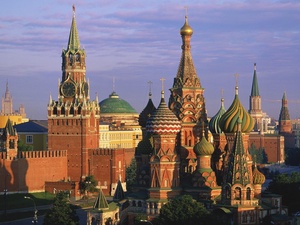
Court decision puts Norway on the hook for massive CO₂ Storage build-out
A ruling by the European Free Trade Association Court that Norway’s continental shelf falls under the European Economic Area Agreement could dramatic...
News

Publish date: April 9, 2013
Written by: Charles Digges
News
The organization is the first Russian NGO targetted by Russia’s new law governing civil society organizations.
The suit comes amid a sweep of hundreds of non-governmental organizations by various Russian authorities from the Prosecutor General to the fire inspectorate in a Kremlin-backed campaign that began late last month.
Several organizations receiving foreign financing are being hauled before prosecutors, including the Environmental Rights Center (ERC) Bellona, over various health and fire code and other bureaucratic infractions – and it will be determined Wednesday whether ERC Bellona is liable for a fine possibly as large as $20,000 after an unannounced inspection of the St. Petersburg office late last month.
The law took effect in November.
No foreign funded Russian NGOs have yet registered themselves under the historically Stalin–era term, according to ERC Bellona’s chairman, Alexander Nikitin.
When the law did take effect, NGO’s receiving foreign funding boycotted registration. One organization that did seek to register – Shchit i Mech (Shield and Sword) was told by the Justice Ministry it could not receive information on how to do so because it was an NGO, The Moscow Times reported at the time.
But Golos, which revealed widespread vote fraud during Russia’s December 2011 Duma poll – sparking months of street protests in Moscow, St. Petersburg and other major Russian cities – has been under special scrutiny from the Kremlin, and on Tuesday became the first organization to be prosecuted under the new foreign agent law, western news agencies reported.
Russian authorities at the time were enraged and accused NGOs like Golos of being fronts for foreign states seeking to destabilize Russia, said the BBC.
The Russian Justice Ministry has now accused Golos – which in Russian means both “voice” and “vote” – of being politically active as well as an unregistered “foreign agent,” the BBC reported late Tuesday.
The Moscow Times reported that a statement posted on the Justice Ministry’s website (in Russian) said that since 2008, Golos had promoted a unified election code, which the web statement claims seeks to alter existing Russian legislation.
Golos therefore “receives foreign funding and carries out political activity on the territory of Russia [and] in other words acts in the capacity of a foreign agent,” the statement, as quoted by the paper, read.
Golos told the BBC it would fight to prove its innocence.
The case will go to court Wednesday and the group could be fined as much as 500,000 roubles ($16,000) and its director, Liliya Shibanova, up to 300,000 roubles ($10,000), the news agency reported.
Shibanova told the state news agency RIA Novosti that the group has not received foreign funding since the law took effect.
“I don’t know on what basis they’re doing this,” she told RIA Novosti, as quoted by the Associated Press.
Golos was in the past partly funded by the United States Agency for International Development (USAID), but that organization was in October expelled from Russia by Kremlin order.
Grigory Melkonyants, deputy head of Golos, told Reuters that: “It’s a sign that without a doubt there has been a political order against Golos. These fines and made-up charges are part of a campaign to discredit and put pressure on Russian NGOs.”
In an interview with The Moscow Times, Melkonyants denied that his organization was involved in political activity and was not accepting foreign grants for monitoring elections.

A ruling by the European Free Trade Association Court that Norway’s continental shelf falls under the European Economic Area Agreement could dramatic...

Bellona held a seminar on countering Russian disinformation in the Arctic at the Arctic Frontiers international conference in Norway

Our December Nuclear Digest, reported by Bellona’s Environmental Transparency Center, is out now. Here’s a quick taste of three nuclear issues arisin...

Bellona has launched the Oslofjord Kelp Park, a pilot kelp cultivation facility outside Slemmestad, about 30 kilometers southwest of Oslo, aimed at r...